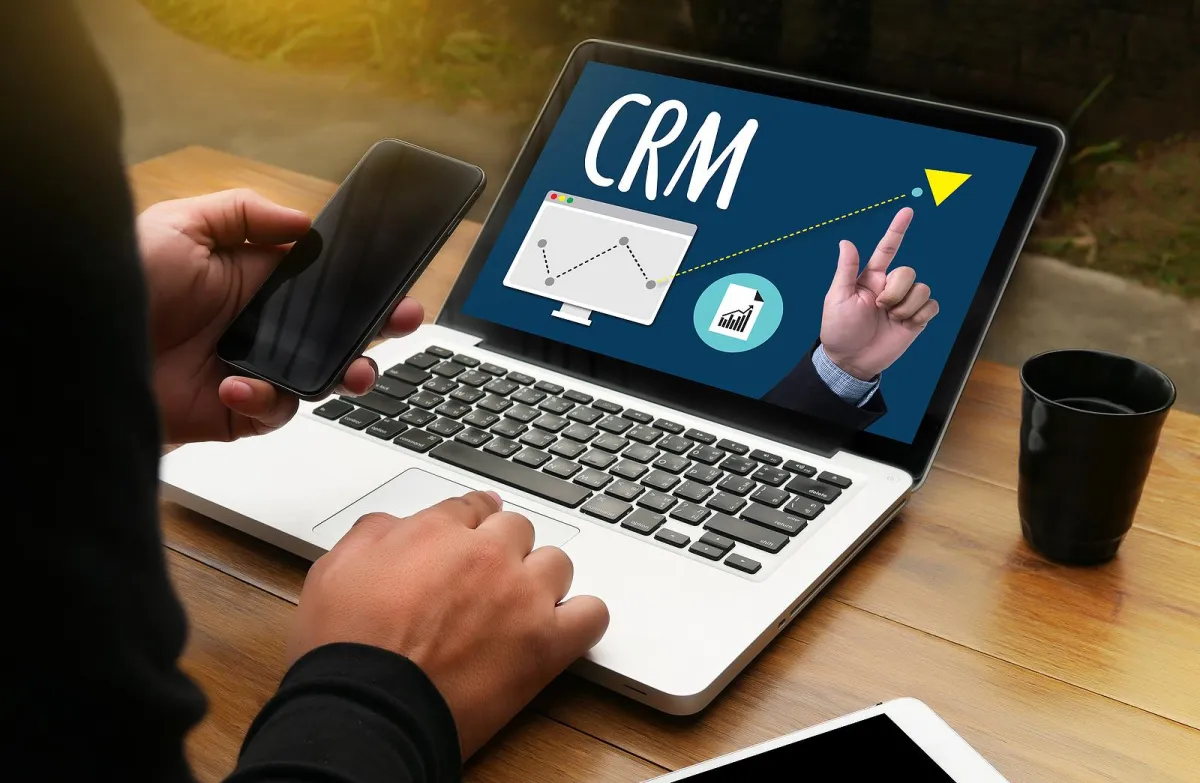Read Our Latest Blogs
Our blog is dedicated to providing Atlanta business owners with valuable insights, expert tips, and the latest updates on tax preparation, planning, and compliance. Whether you're looking to catch up on overdue filings, navigate complex tax laws, or simply stay informed about best practices, you'll find the resources you need right here. Dive into our articles and discover how proactive tax management can benefit your business and help you achieve financial success.
Join Our Email List

How to Track Business Expenses Like a Pro: Master Your Finances with Automation
Introduction
Tracking business expenses is one of the most critical aspects of managing a small business. However, for many entrepreneurs, it can be daunting and tedious. From organizing receipts to categorizing transactions, it's easy to fall behind. In this blog, we will walk you through practical ways to track business expenses like a pro, using automation tools to save time and improve accuracy. By the end of this post, you'll clearly understand how to track business expenses efficiently, helping you stay on top of your financial game.
The Importance of Tracking Business Expenses
Before diving into how to track business expenses, let's first understand why it's so crucial for your business:
Tax Deductions: Accurate expense tracking is vital for maximizing tax deductions. By recording all business-related expenses, you ensure that you can claim everything you're entitled to at tax time.
Financial Health: Tracking expenses helps you gauge your business's financial health. You can identify overspending, manage cash flow, and make informed decisions to keep your business profitable.
Compliance: Keeping a detailed record of your expenses ensures you comply with legal and tax regulations. Failure to track the costs properly can lead to costly penalties or legal issues.
Strategic Planning: Understanding your spending habits allows you to create better budgets, forecast expenses, and make more accurate financial projections.
Now that we know why tracking business expenses is essential, let's explore the methods and tools that can make this process seamless and efficient.
Manual Tracking vs. Automation: What's the Best Option?
Traditionally, small business owners have tracked expenses manually through spreadsheets or paper receipts. While this method can work in the short term, it becomes cumbersome and error-prone as your business grows. Manual tracking can lead to mistakes, delays, and missed deductions.
On the other hand, automation takes care of these tasks for you, reducing the risk of human error and saving you valuable time. Automated tools can track, categorize, and even report your expenses in real-time, making it easier for you to focus on growing your business.
In this blog, we will focus on two powerful tools for tracking business expenses efficiently: Expensify and Zoho Books.
Step 1: Set Up Expense Categories
Before tracking your expenses, you must set up a system to categorize them. Categorizing your expenses helps you stay organized and ensure accurate financial reports. Here are some common expense categories:
Office Supplies: Pens, paper, printer ink, and other necessities.
Travel Expenses: Flights, hotels, meals, and other travel-related costs.
Marketing & Advertising: Costs associated with online ads, flyers, and other promotional materials.
Software & Subscriptions: Monthly or yearly subscriptions for tools like CRM software, email marketing platforms, and accounting tools.
Employee Salaries & Contractor Fees: Payroll expenses and payments to freelancers or contractors.
Miscellaneous: Any other expenses that don't fall under the main categories above.

How to Set Up Categories in Expensify
Expensify simplifies the process of setting up and managing expense categories. After signing up, you can create custom categories based on your business's unique needs. Expensify also offers built-in categories that you can use to get started right away.
How to Set Up Categories in Zoho Books
Zoho Books allows you to set up expense categories within its user-friendly dashboard. By navigating to the "Settings" section, you can create new categories and assign them to various expenses. You can also use Zoho Books' default categories or customize them according to your business requirements.
Step 2: Use Expense Tracking Software for Automation
Once your categories are set up, it's time to automate the tracking process. Expensify and Zoho Books offer powerful expense tracking automation features that save you time and reduce errors.
Expensify: A Pro at Expense Tracking
Expensify is a comprehensive expense management tool that integrates seamlessly with your bank accounts, credit cards, and other financial software. Here's how you can automate expense tracking with Expensify:
Automatic Expense Imports: Expensify automatically imports transactions from linked credit cards and bank accounts. This feature reduces manual data entry and ensures you never miss a transaction.
Receipt Scanning: Expensify's mobile app allows you to take pictures of your receipts. The app uses OCR (Optical Character Recognition) technology to extract key information, such as date, vendor, and amount, and categorizes the expense automatically.
Expense Reports: Expensify generates expense reports with a few clicks. You can review your expenses in a detailed report, making it easy to submit them for reimbursement or tax purposes.
Integration with Accounting Software: Expensify integrates with various accounting platforms, including QuickBooks, Xero, and more. This allows you to sync your expenses directly to your accounting system for a streamlined process.
Zoho Books: A Robust Solution for Expense Tracking
Zoho Books is a cloud-based accounting software that helps you track expenses and offers robust features for managing invoices, payments, and financial reporting. Here's how you can automate expense tracking with Zoho Books:
Bank and Credit Card Feeds: Zoho Books automatically syncs with your bank and credit card accounts, importing all transactions into the software. This helps you keep track of your spending without manually entering each transaction.
Automatic Expense Categorization: Zoho Books automatically categorizes your expenses based on predefined rules. You can customize these rules to suit your business needs.
Recurring Expenses: Zoho Books allows you to set up recurring expense entries for regular expenses such as subscriptions or rent. This feature ensures that your recurring costs are always accounted for.
Detailed Financial Reports: Zoho Books provides insightful reports that show your spending patterns, profit margins, and other key financial metrics. These reports make it easy to track expenses and assess your financial health.
Step 3: Create and Submit Expense Reports
Once your expenses are automatically tracked, it's time to create and submit reports. Both Expensify and Zoho Books offer easy-to-use tools for generating expense reports.
How to Generate Expense Reports in Expensify
Expensify allows you to create expense reports based on specific time frames or categories. Once the report is ready, you can submit it for approval or reimbursement. The software also provides an audit trail so that you can keep track of all changes made to the report.
How to Generate Expense Reports in Zoho Books
In Zoho Books, generating an expense report is just as easy. Navigate to the "Expenses" section, select the period, and create a report. You can filter expenses by category, payment method, or vendor. These reports are invaluable for analyzing your spending habits and preparing for tax season.
Step 4: Stay on Top of Your Budget
Tracking expenses isn't just about recording transactions—it's also about staying within your budget. Expensify and Zoho Books provide budget-tracking features that help you monitor your financial goals.
Expensify: You can set budgets for specific categories and track your monthly progress. If you're approaching your budget limit, Expensify will notify you so you can make adjustments before overspending.
Zoho Books: Zoho Books allows you to set budgets for various expense categories and compares actual expenses against your planned budget. This helps you stay on track and avoid unnecessary expenditures.
Step 5: Ensure Compliance with Tax Regulations
Properly tracking your business expenses helps ensure you remain compliant with tax regulations. Having accurate records will also make the process much smoother when it comes time to file taxes.
Expensify and Zoho Books make it easy to stay compliant by generating reports summarizing all your business expenses. You can export these reports directly to your accountant or tax preparer, minimizing the chance of errors and saving time during tax season.
Step 6: Leverage Automation to Save Time and Money
One of the main benefits of automating your business expense tracking is the time it saves. By relying on automation tools like Expensify and Zoho Books, you can free up valuable time to focus on growing your business. Plus, you'll reduce the likelihood of costly mistakes, which can add up over time.
If you're ready to take your business expense tracking to the next level, it's time to leverage automation. These tools simplify the process and help you stay organized, saving time and money in the long run.
Ready to Automate Your Business?
If you want to learn more about automating your business processes and improving efficiency, schedule a Book Automation Strategy Call today. We'll guide you through the best tools and strategies to take your business to the next level.
Also, don't forget to check out our [Automation Intro] and [Dashboard Walkthrough] for more in-depth tips on how to leverage automation for better business management.
Using tools like Expensify and Zoho Books allows you to track business expenses like a pro, giving you more time to focus on growing your business and making smarter financial decisions. Start automating today, and take control of your business's economic future.

Hear What Our Clients Say
See Our Google Reviews

George Owens

MATS did such a great job on my taxes! This was my first year filing as a real estate agent and they were quick, efficient, personable and worked throughout the weekend to make sure I met the tax deadline. It was an easy process of filing with a simple app and I saved thousands on my tax bil

Max Tanner

I’ve been a happy client of Madison’s Accounting and Tax services for about 3 years now. They have not only done an excellent job of handling my taxes, as I have several businesses, they have increased my tax knowledge as well. I love that as my business continues to grow they are constantly working to keep my finances straight in a creative yet compliant way. I highly recommend.

Kim Wexler

MATS allowed me to make informed decisions and optimize my return, while enlightening me on how I can improve my outcome for the upcoming tax year. I am satisfied and I am excited to continue working with this awesome business.

Billy Jackson

MATS has supported our taxes for a few years and consistently delivers in a timely manner. They take the weight of intricate filing of several forms off your shoulders. We appreciate their timely communication and care for their customers.


© 2025 Madison's Accounting & Tax Services LLC - All Rights Reserved. Terms of Service | Privacy Policy
470-665-5503

